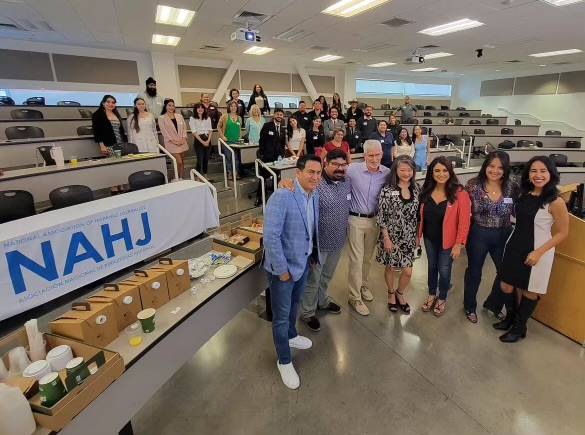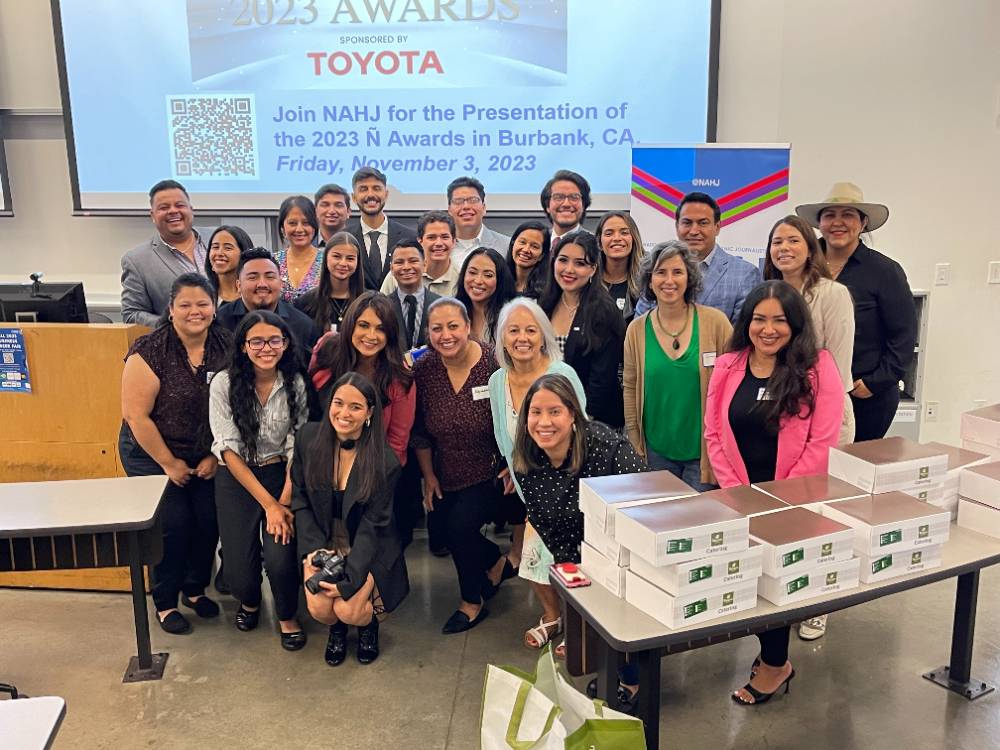
 CSUF hosted NAHJ's panel "Breaking Boundaries for Media Equality"
(Photo credit: courtesy of CSUF's NAHJ)
CSUF hosted NAHJ's panel "Breaking Boundaries for Media Equality"
(Photo credit: courtesy of CSUF's NAHJ)
On Saturday, Sept.18, Cal State Fullerton’s National Association of Hispanic Journalists (NAHJ) hosted its national association’s panel, “Breaking Boundaries for Media Equality.” The event took place in Mihaylo Hall at 9 a.m.
The event was free and open to all interested in journalism. NAHJ brought
multiple professionals within the industry who spoke about many important aspects, such as how to fact-check statements and statistics, cover business-related stories and why we need a mentor in the journalism industry. It is also an opportunity to network, discover and get to know them in depth.
The club brought panelists from different positions and roles which students can relate to and set examples for their community. The panelists included Jon Greenberg, Lyanne Alfaro, Dunia Elvir, Zaydee Sanchez and Jorge Miramontes; each had unique positions and separate admiration for their job.

Students learned the importance of fact-checking, having a mentor and how to conduct business-related journalism (Photo credit: courtesy of CSUF's NAHJ)
Greenberg is a senior correspondent for PolitiFact, which is part of the Poynter Institute. In 2013, he was one of the fact-checkers at PolitiFact who launched the creation of PunditFact, where forms of media are checked for accuracy when they make claims. At one point, Greenberg was executive editor at New Hampshire Public Radio and has even won awards twice for investigative reporting from the Society of Professional Journalists.
Greenberg expressed his belief that people should never limit themselves to one skill but rather expand their options, hence why he has pushed himself to where he is now. Always remain curious and hungry to learn more information and skills, he said.
Founder and host of “
Moneda Moves,”
Alfaro
also believes in the same concepts as Greenberg. For “Moneda Moves,” her job is illustrating stories about the latest technology, business and leadership trends and how they affect the Latinx community regarding finances.
She mentioned that situations change constantly and journalists should be ready for any outcomes. Students should learn to adapt and be flexible to the latest news. Alfaro explained that trends change occasionally, so they better be prepared and have fun with it.
Award-winning journalist Elvir has been a news anchor for over 20 years for NBC/Telemundo. Elvir has had a successful career in journalism and has volunteered as a member of many non-profit organizations.
She believes as a journalist that, wherever she goes, she should always give back to the community, family and friends who were there for her in her darkest time and that the future journalists who sat listening to the panel should do the same.
The next speaker was Miramontes
. Like
Elvir, he is also part of the NBC/Telemundo
team as a news correspondent, but before joining the team, he was also the news director and anchor of a Spanish-language online newscast on Global TV. He worked as a freelancer for a show, “Al Rojo Vivo,” where they captured the latest news, including dramatic and unusual videos and segments of social interest. Despite freelancing for the show for seven years, he never gave up his passion and drive to become a news correspondent.
The same drive and enthusiasm came from Sanchez, a freelance photojournalist and writer based in Los Angeles. Her work involved labor workers, environmental issues and migration throughout the U.S., Mexico and Central America. She has produced work for National Geographic, DAME magazine and even CalMatters.
For Sanchez, journalism means bringing stories to life through visuals and images because people tend to be more intrigued with raw emotions and sentiments without destroying the essence of the story.
After the panel finished, students had the chance to meet the panelists to network and ask them questions regarding future programs and bits of advice.
